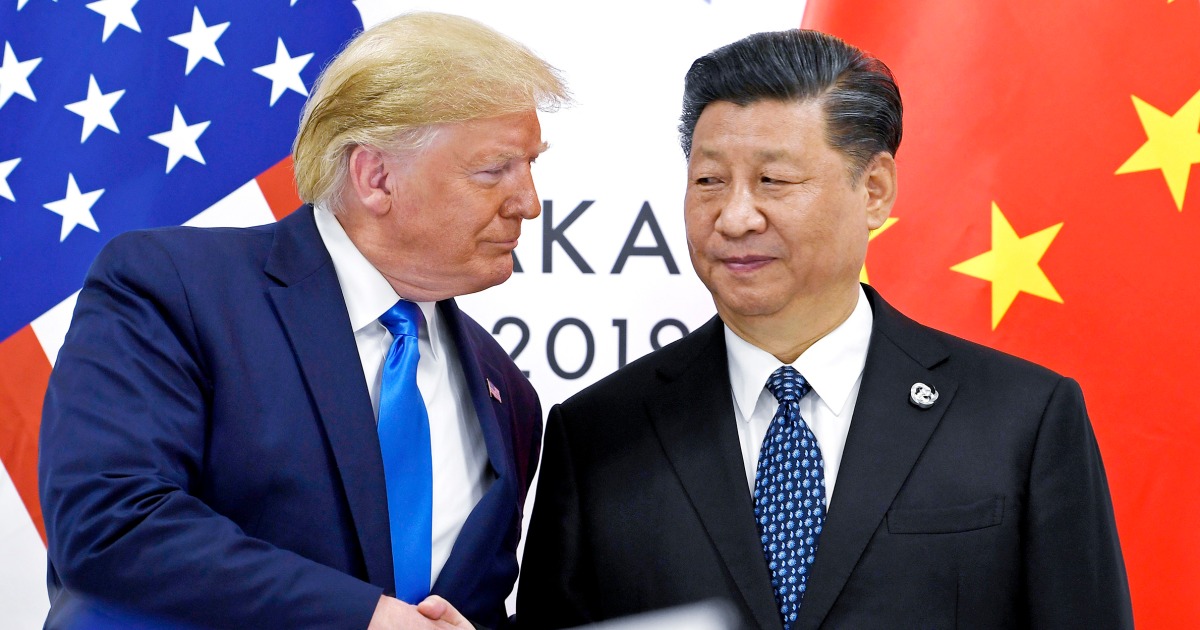Will Trump and Xi Seal the TikTok Deal and Discuss Trade?

Published: 2025-09-19 08:18:28 | Category: Trump GNEWS Search
This article explores the ongoing negotiations between the United States and China regarding the popular short-video app TikTok, amid trade tensions and national security concerns. The potential sale of TikTok's U.S. assets could determine its future in the country, reflecting broader geopolitical dynamics.
Last updated: 16 October 2023 (BST)
Understanding the TikTok Negotiations
The discussions around TikTok revolve around its ownership structure and data security concerns. The app, developed by the Chinese company ByteDance, has become a cultural phenomenon in the U.S., boasting approximately 170 million active users. However, with growing fears about data privacy and national security, particularly regarding the Chinese government's potential access to user data, the U.S. government has mandated a divestiture of TikTok's U.S. operations.
Key Takeaways
- President Trump and Xi Jinping are discussing a potential deal on TikTok amid ongoing trade tensions.
- The U.S. has a deadline of 16 December for ByteDance to sell TikTok's U.S. assets.
- Concerns about data privacy and national security are central to the negotiations.
- Chinese officials have expressed opposition to the politicisation of technology issues.
- Congressional approval will likely be necessary for any final agreement.
The Background of TikTok's Controversy
The scrutiny of TikTok began to intensify in 2020, as the Trump administration raised concerns over the app's data practices. The U.S. government argued that Chinese laws could compel ByteDance to share user data with the Chinese government, thus jeopardising American users' privacy. In response, TikTok has consistently denied any wrongdoing, asserting that it does not share user data with Chinese authorities.
Trade Relations and Tariffs
As the TikTok negotiations progress, they unfold within a broader context of economic tensions between the United States and China. Tariff rates, which previously soared to as much as 145% during the height of the trade war, have now been lowered under a preliminary agreement. However, these rates are set to expire on 10 November, unless a new deal is reached.
The ongoing discussions highlight the intertwined nature of technology and trade in the current geopolitical climate. Both nations are vying for technological dominance, particularly in sectors such as semiconductors and artificial intelligence, which are viewed as critical for future economic security.
The Current State of Negotiations
During a recent interview, President Trump mentioned that both sides are "very close to deals on all of it," indicating a potential willingness to strike an agreement that could satisfy both parties. The call between Trump and Xi, set for 9 a.m. ET, aims to create a framework for TikTok's future in the U.S. market.
On the Chinese side, officials have confirmed that a "basic framework consensus" has been reached regarding TikTok. However, they have also reiterated their stance against the politicisation of technology, suggesting that any agreement must uphold their core principles concerning corporate interests and international fairness.
The Implications of a TikTok Deal
A successful sale of TikTok’s U.S. operations could provide a substantial victory for the Trump administration, particularly ahead of the 2024 presidential election. However, experts caution that such a deal might yield only temporary relief from the ongoing tensions. Dimitar Gueorguiev, a political science expert, warned that the TikTok algorithm's value has diminished as other platforms develop similar technologies.
In essence, the sale would likely equate to acquiring market share rather than transformative technology, which could ultimately render TikTok an expendable asset in the eyes of Beijing. This perspective underscores the complex interplay of technology and diplomacy in modern international relations.
Concerns Over Data Privacy
Data privacy remains a pivotal concern in the TikTok negotiations. U.S. officials have highlighted the app's potential vulnerability to manipulation by Chinese authorities, given the stringent data-sharing laws in China. While TikTok maintains that it does not share data with the Chinese government, the apprehensions surrounding its algorithm and data practices persist.
Lawmakers in the U.S. have voiced opposition to any deal that allows ByteDance to retain control over TikTok's data or algorithms. Representatives John Moolenaar and Raja Krishnamoorthi have stressed the importance of ensuring that any eventual agreement results in full American ownership of TikTok's operations and data, asserting that President Trump holds substantial leverage in these negotiations.
The Path Forward
The upcoming call between Trump and Xi is not just about TikTok; it also serves as a crucial juncture for broader U.S.-China relations. With the expiration of tariff rates looming, both nations may need to find common ground on several fronts, including technology transfer, trade imbalances, and data security regulations.
As the negotiations unfold, the stakes extend beyond TikTok, highlighting the deep-rooted economic rivalry between the two superpowers. Companies and users alike will be closely watching the outcome of these discussions, as they could have lasting implications for the technology landscape in both the United States and China.
Conclusion
In summary, the fate of TikTok in the U.S. remains uncertain as negotiations continue. The outcome could redefine not only the app's future but also the dynamics of U.S.-China relations in the digital age. The interplay of technology, trade, and national security will be pivotal in shaping the next chapter of this ongoing saga.
As we await the results of the discussions, one question looms: How will the resolution of the TikTok issue impact broader technological competition between the U.S. and China? #TikTok #USChinaRelations #DataPrivacy
FAQs
What is TikTok?
TikTok is a short-video social media platform owned by the Chinese company ByteDance, allowing users to create and share videos, often set to music.
Why is TikTok facing a potential ban in the U.S.?
The U.S. government is concerned about national security risks related to user data privacy and the potential for the Chinese government to access this data.
What are the implications of a TikTok sale in the U.S.?
A sale could alleviate current regulatory pressures, but concerns about data privacy and control over the app's algorithm may remain unresolved.
What is the current status of U.S.-China trade relations?
U.S.-China trade relations are tense, with tariff rates recently lowered but set to expire unless new agreements are reached regarding trade and technology.
What role does Congress play in the TikTok negotiations?
Any agreement on TikTok's future will likely require approval from Congress, particularly regarding national security and data privacy concerns.



